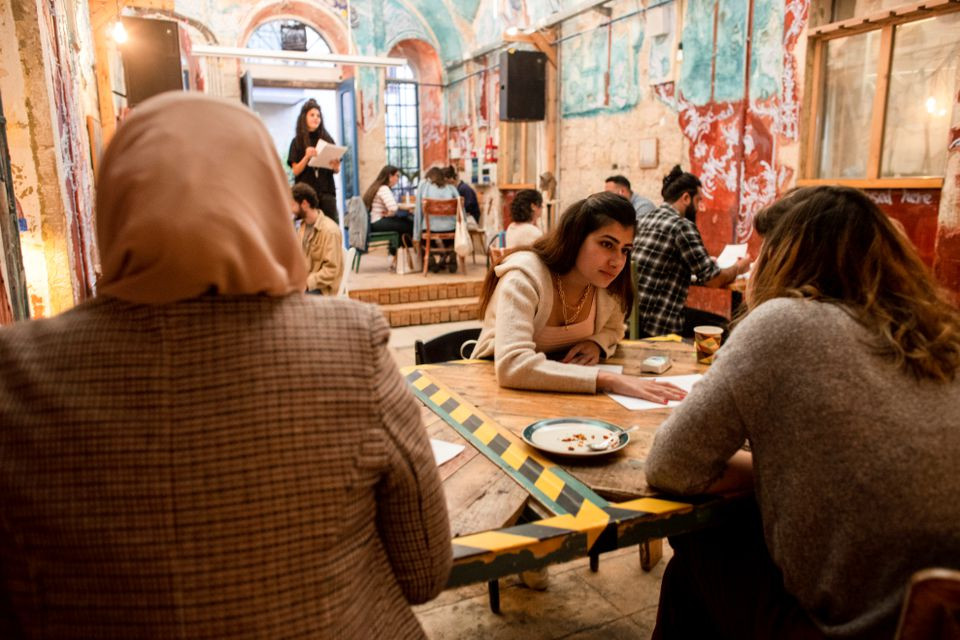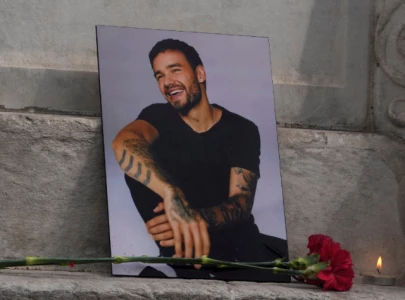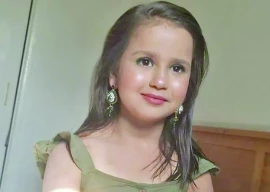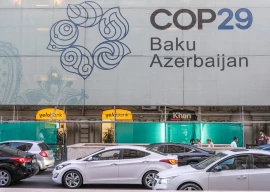
Sami Abu Shamsia's wrists were swathed in bandages covering wounds he says were inflicted by mobsters who kidnapped him in October, part of an unprecedented Arab crime wave in Israel.
Still bruised, he pointed out bullet holes in the gate outside his east Jerusalem home, a reminder of the drive-by shootings that preceded his abduction.
Recalling his five days as a hostage, Shamsia, 47, told AFP he was held in the central city of Lod, one of the areas hit by the violence wracking Israel's 20 percent Arab minority.
"I was blindfolded. My hands were tied behind my feet. My feet were tied with ropes, and I was lying on the ground. They beat me and threatened to fire bullets into my legs," he said.
Officials have blamed the spate of violence on Arab crime families which have accumulated power and weapons over the past two decades.
Prime Minister Naftali Bennett has specifically pointed the finger at organised crime groups he accused of committing murder and running "protection rackets".
"A state within a state has developed," Bennett said late last year, charging the gangs had acquired "quantities of illegal weapons that are enough for a small army."
Public Security Minister Omer Barlev has said "crime families in the Arab sector" are "holding the community by the throat."
$9.4 bn to 'close the gap'
Bennett's coalition government, the first in Israeli history to be backed by an Arab party, has approved measures to combat the violence by improving socio-economic conditions among Arab citizens who have long complained of unequal treatment compared to Jewish Israelis.
Those programmes include an eye-popping $9.4 billion in funding over five years to "close the gap" between the country's Arab and Jewish citizens, focusing on employment promotion, especially in hi-tech, and enhancing social services.
A separate $780 million crime fighting plan for Arab communities has also been approved.
But such interventions, which are still getting off the ground, did not stop 2021 from becoming the deadliest year on record for murders with Arab victims.
According to the Aman Center, a civil society group that works to curtail violence in Israel's Arab community, a record 128 Arab civilians were killed in 2021 as a result of violent crime.
The group recorded 113 such killings in 2020, 96 in 2019 and 67 in 2018. The vast majority of the victims have been male, according to multiple sources.
Growth of loan sharks
Shamsia, a trader working in the occupied West Bank, told AFP that Lod-based mobsters wanted to collect roughly $270,000 in debt run up by his brother, a drifter with a criminal past disowned by the family six years ago.
Shamsia said he refused to pay.
In the October 14 kidnapping, captured on security camera footage seen by AFP, a vehicle sped into the compound where Shamsia works and men grabbed him.
"I insisted that I would not pay money that I never borrowed," he recounted.
His stubbornness apparently led to his release five days later.
Walid Haddad, a criminologist who previously advised Israel's interior ministry, said there are five main Arab-controlled crime families in the country whose power has risen considerably since 2003.
That year a failed assassination attempt on prominent Jewish mobster Zeev Rosenstein killed three innocent bystanders in downtown Tel Aviv, prompting then-prime minister Ariel Sharon to order a crackdown on Jewish-led organised crime, with help from the American FBI.
Once the Jewish mafia was weakened, Arab gangs who had been "subcontractors" for Jews, "began filling the power vacuum," Haddad told AFP in the majority Arab city of Nazareth.
"They decided to base their activities in Arab communities because they knew the police didn't care what happened there," he added, specifying that Israel's security forces have prioritised Palestinian political violence above mob-linked criminality.
Haddad and other experts told AFP that part of the violence had been driven by a growing loan shark trade among Arab mobsters, who offer fast cash to Arab citizens underserved by Israel's leading banks.
Jaafar Farah, director of the Center for Equal Rights in Haifa who has lobbied Israel's parliament on behalf of Arab citizens, said "Israeli banks discriminate against Arab citizens."
"They (often) don't give loans to Arabs, so people are forced to borrow at high interest rates from criminal gangs on the black market," said Farah, explaining that funds are sometimes delivered in bricks of cash by motorcycle courier.
But, if the borrower "doesn't pay, first they break his legs, (then) they kill him."

1731028448-0/Untitled-design-(37)1731028448-0-165x106.webp)















COMMENTS
Comments are moderated and generally will be posted if they are on-topic and not abusive.
For more information, please see our Comments FAQ